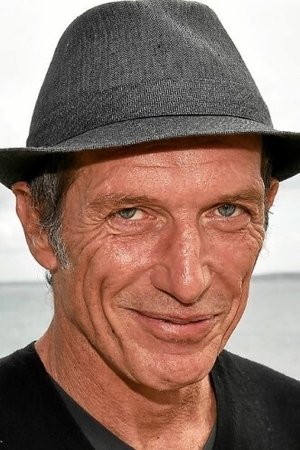Christophe Miossec (b. 1964)
Birthplace:
Brest, Finistère, France
Born:
December 24, 1964
Christophe Miossec is a French singer and songwriter born in Brest, Brittany, France on 24 December 1964. Christophe Miossec was not new to the world of music when he met his first great success. Between 14 and 17, he was in a teenage band, Printemps Noir ("Black Spring"), touring around Brest. After obtaining his Baccalauréat in literature, Miossec went to study history at the Brest University, and quickly got bored. He then worked some time for the paper Ouest France. Journalism didn't suit him any better than history did, so he moved to Paris, and went from one little job to another for some time. He finally joined the French TV Station TF1 and worked there for two and a half years. Eventually, he began to think about turning back to music. In 1993, he had a critical meeting with guitarist Guillaume Jouan, which led the two to start working on an album. A year later, they were joined by the guitarist Bruno Leroux. After having tested out 15 or so compositions, the trio went into a studio and created their first album Boire (English: Drink), which was released in 1995. An auspicious début, it was declared Album of the year by the magazine Les Inrockuptibles. The wry, world-weary lyrics and the sparse, stripped-down musical backdrop of Boire would gain more than critical acclaim; the album would meet a promising commercial success with over 90,000 copies sold. Encouraged by this, Miossec set out to record a second album, this time with an expanded band, which included his previous two guitarists and Yves-André Lefeuvre on the drums, and Olivier Mellano (a frequent collaborator with Dominique A) on guitar and violin. Together, they would make Baiser (a double entendre meaning both "a kiss" and "to fuck") in 1997. This album was marked by a new, fuller musical arrangement that disappointed some fans who preferred the understated musical backdrop of the first album, but Baiser was, nonetheless, another critical and commercial success for Miossec. He was nominated for the 1997 Victoires de la Musique prize for Best newcomer, but he stated that he did not want to take part in the event. A year later, the third album, A prendre (English: To Be Taken), would come out only one year later, coïnciding with the birth of his son, Theo. Sounding somewhat like a mix of the first two albums, Miossec was not happy with this recording, considering it to be commissioned and written too quickly, but, ironically, A prendre would be his biggest commercial success to that date, with over 120,000 copies of the album having been sold. The success of A prendre meant that Miossec came to a wider public attention, opening up new horizons and allowing him to write songs for other artists. His success with A prendre, his least-loved album, left a bitter taste in Miossec's mouth, which he wanted to wash away. His attempt at this led to the fourth album, Brûle (English: Burn), which some considered to be demonstrative of the growing maturity of the artist. The album features a song, "Grandir", that seems to be referring to his son, revealing a new dimension to Miossec's songwriting. ... Source: Article "Miossec" from Wikipedia in English, licensed under CC-BY-SA 3.0.





